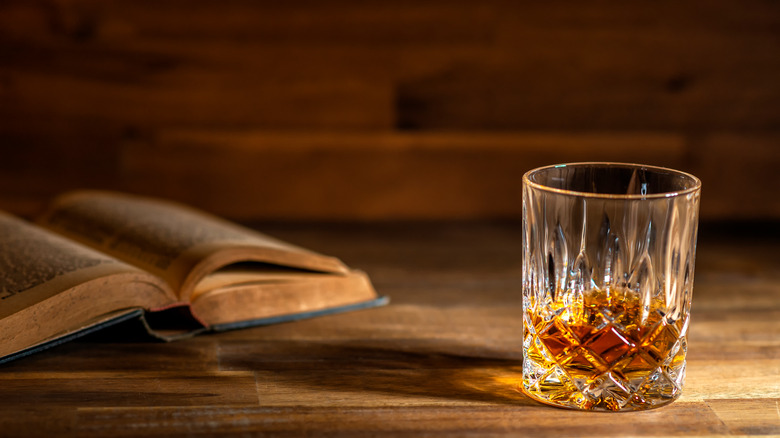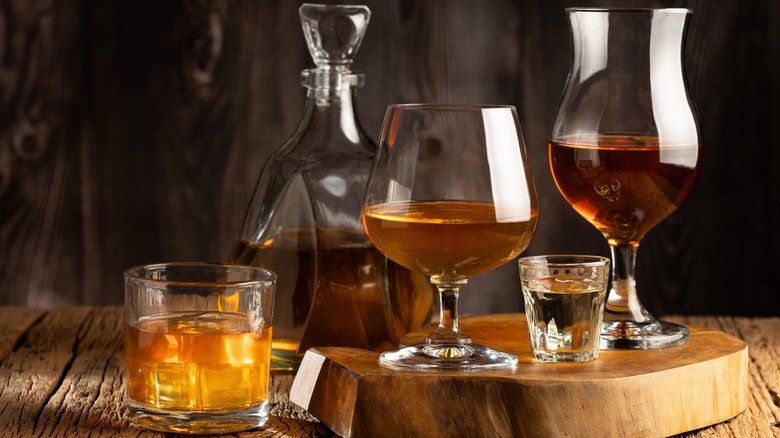The History Of How Rum Restrictions Helped Bourbon Become A Popular Spirit Of Choice
Bourbon is seen as such a quintessential American product that it's easy to take its popularity for granted. But the story of bourbon easily could have played out quite differently. Before the Revolutionary War, rum was America's most popular spirit by far. Rum was largely a product of British colonies in the Caribbean until the late 1700s, when rum distillers began cropping up in New England. As tensions rose, Britain began restricting the Colonies' access to molasses which did not help their already fraying ties.
When the fledgling American government emerged victorious it was hit with its first major challenge — it was broke. War may be a racket but it's also expensive, and there was a real possibility the fragile new democracy would collapse just as quickly as it had formed if it didn't find a way to finance itself.
Alexander Hamilton was the nation's first Secretary of the Treasury and as such it was his responsibility to find some money. But the Constitution made it incredibly difficult for the government to tax people directly at the time, so Hamilton helped usher in The Distilled Spirits Tax of 1791 which taxed imported spirits and whiskey. But whiskey was used as a currency in 18th century America and The Whiskey Tax was widely despised as being overly burdensome. The backlash resulted in The Whiskey Rebellion of 1794 which climaxed in a deadly firefight at a Pennsylvania tax collector's mansion. The rebellion was subdued but what came after would change American drinking culture forever.
Cheap bourbon outperformed rum thanks to high taxes
Due in no small part to the violent resistance against it, The Whiskey Tax was repealed in 1802 by Thomas Jefferson. But money was still tight and the government needed a way to raise funds. Instead of taxing whiskey, they began to put hefty tariffs on rum and molasses which were largely imports from British Caribbean colonies. From 1802 until 1862, whiskey enjoyed zero taxation apart from a brief period during The War of 1812. Rum, on the other hand, had a 20% duty tax instituted in 1812 and, by 1822, British West Indies rum paid a whopping 110% tariff. It wasn't just foreign rum distillers, either. New England rum distilleries were hit twice; with a 40% tariff on molasses and then again with a separate tax on their own rum products.
While this did help the government stay afloat financially, it also made rum roughly three times as expensive as whiskey. Since one of rum's best features at the time was how inexpensive it was, these tariffs effectively stifled Americans' appetite for the stuff. So while bourbon (and whiskey in general) was enjoying no taxation, rum was getting taxed off the shelves. It's not entirely clear what would have happened if this unequal tax system hadn't been implemented, but it is clear that whiskey skyrocketed in popularity over the coming decades because of it. Without the favorable tax structure, who knows if bourbon would have gone on to become America's Native Spirit?

